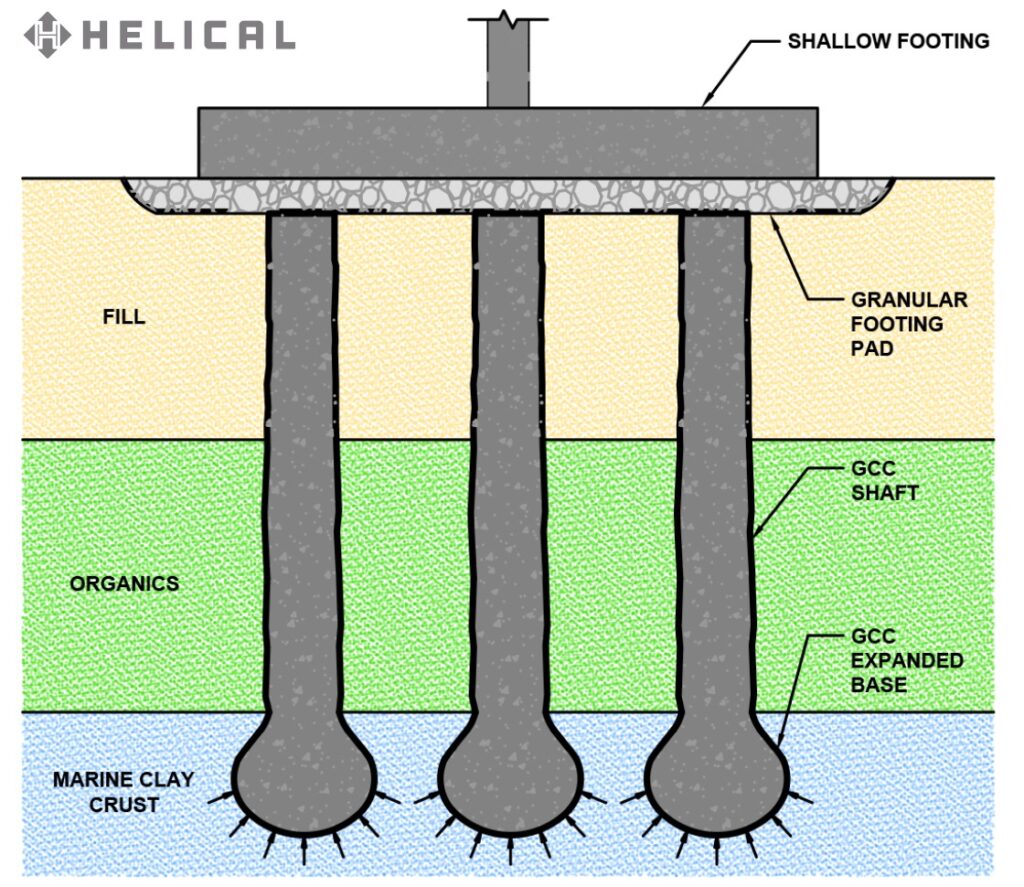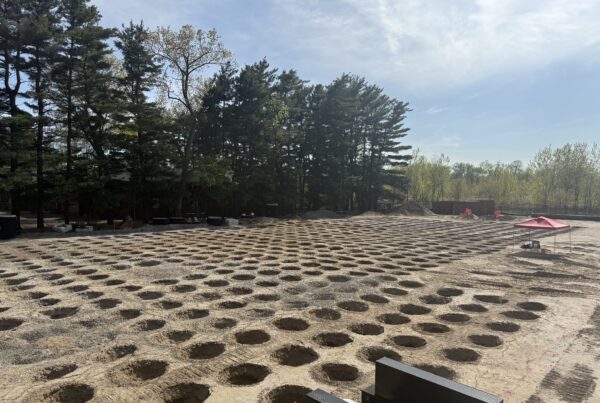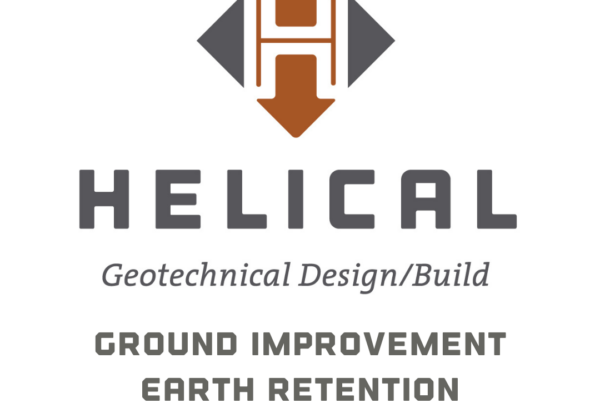It is well established that Geopier® GeoConcrete® (GCC) Rigid Inclusion (RI) elements are suitable for supporting heavy loads on sites with soft ground conditions, including thick peat and organic silt layers. GCC RIs often terminate below the soft layers in relatively dense granular soils (such as glacial till), or even on bedrock. However, there is a common misconception that GCCs must terminate in granular soils (or bedrock) … not the case! In fact, GCCs can even terminate in the upper, shallow desiccated “crust” of thick marine clay layers. This includes the infamous Boston Blue Clay (BBC), which has a stiff upper crust that is generally about 5-15 feet thick and encountered within about 20-30 feet of the ground surface. Below the upper crust, BBC generally gets very soft with depth and can be thicker than 100 feet before encountering deep glacial till. So, what makes GCCs so special that allow them to terminate in the shallow marine clay crust?
Geopier GCCs are constructed with a specially designed and patented displacement mandrel that penetrates through unsuitable soil layers and forms an expanded concrete base within the underlying bearing layer.

GCC Rigid Inclusions Supporting a Shallow Footing
Since the expanded base maximizes the available end-bearing area, GCC RIs can achieve relatively high capacities when terminating in shallow marine clay crusts. Allowable footing bearing pressures of about 4 to 7 kips per square foot (ksf) are common.
Terminating a straight-shaft rigid inclusion (without an expanded base) in a shallow marine crust can be impossible or impractical since the element’s available end-bearing area is relatively small. As such, a straight shaft rigid inclusion must rely on side friction for capacity, which is often not adequate since the marine clay crust can be relatively thin. This can result in low element capacities, which increases RI cost and schedule, or requires deeper elements that completely penetrate through the marine clay (also increasing cost and schedule).
In summary, Geopier GCC RIs are constructed with an expanded base that maximizes the available end-bearing area in shallow marine clay crusts. This helps optimize required RI quantities, lengths, and associated costs. Allowable footing bearing pressures of about 4 to 7 ksf are common.



